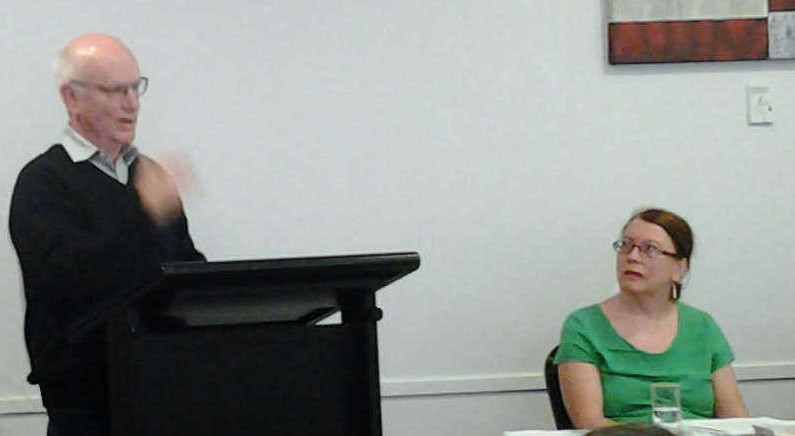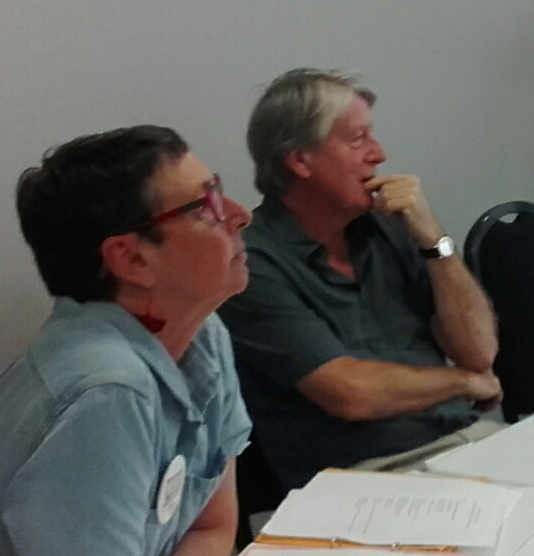Two speakers addressed the October VR meeting: Pat Ranald, of the Australian Fair Trade & Investment Network, AFTINET, and Peter Murphy of the Philippines Australia Union Link, PAUL.
AFTINET is, in the words of its own webpage, “a network of community organisations and individuals that has campaigned since 2000 for a fairer and more democratic global trade system, based on human rights and environmental sustainability.”
With its fifty or so component organisations it has been an enormously influential opposition to the worst of so-called “free trade” agreements like the TPP. As Pat explained, the TPP was not about free trade but was meant to let the US write the rules in this region, rather than China. Big corporations would get more power, and those outside the US would get more access to US markets. In the US, unions and NGOs influenced the Democratic Party, and the TPP didn’t manage to get the numbers in Congress. In Australia, a Senate enquiry found that there wasn’t support for the TPP.
Peter gave us a short history of the Philippines union movement. The KMU (Kilusang Mayo Uno, May First Labour Movement) was established in 1980. ACTU president Cliff Dolan made an issue of the gaoling of KMU members in the early 1980s, raising it with the Hawke government, and pressure from the Australians contributed to the release of these people. International links do make some leverage possible.
In 1990 there was a push-back against the unions in the Philippines, driven by US corporations. It became hard to run a union. Philippines union membership is now only at 1%, compared to 13% in Australia. Seventy per cent of Philippines workers are casuals; they are allowed to join a union after working for six months. If they do, the bosses sack them.
Photo: Peter Murphy addresses the Vintage Reds meeting; Pat Ranald looks on.
 For six years, while the demands at work steadily increased, wages for cleaners at the Canberra Hospital were essentially frozen.
For six years, while the demands at work steadily increased, wages for cleaners at the Canberra Hospital were essentially frozen.




 We were delighted to welcome our speaker, Emma Davidson, from the Women’s Centre for Health Matters, who spoke on the topic of housing in the ACT.
We were delighted to welcome our speaker, Emma Davidson, from the Women’s Centre for Health Matters, who spoke on the topic of housing in the ACT.

 We had no speaker for the September meeting, and were instead treated to a slide show of photos with commentary, from the successful Caministas who are safely returned from their adventures.
We had no speaker for the September meeting, and were instead treated to a slide show of photos with commentary, from the successful Caministas who are safely returned from their adventures. Three Vintage Reds members, who recently returned from walking the Camino to Santiago de Compostela through France and Spain, delivered a letter to the Embassy of France in Canberra to protest against Emmanuel Macron’s plan to bring in new labour laws.
Three Vintage Reds members, who recently returned from walking the Camino to Santiago de Compostela through France and Spain, delivered a letter to the Embassy of France in Canberra to protest against Emmanuel Macron’s plan to bring in new labour laws.